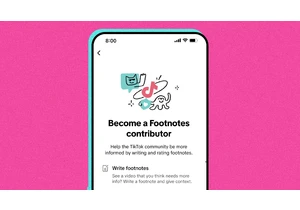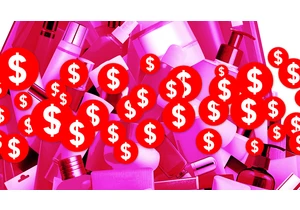There’s a ringing sound as I write this. There’s a ringing sound when I write anything. It reverberates like tinnitus. Several years ago, I started using an app from Twitter called TweetDeck to track my likes and retweets—they call tools like these social media dashboards, but they’re better understood as the vital signs for an internet dopamine junkie. One of the options in the app is to hear a shrill, school alarm bell sound anytime anyone interacts with one of your tweets. Out of curiosity, I enabled the feature. The first ring startled. The second one went down a little easier. The third ring calmed. And after that, I needed the fourth ring. When the alarm bells went off in quick succession, it felt good, like a song I wanted stuck in my head. So, that day, I decided to leave the feature on for a little while. That was about a decade ago. Since then, anytime someone responds to me, mentions me, retweets me, likes one of my tweets, shares anything related to my newsletter, NextDraft, or links to any of my other writing online, I hear the ring. And I experience a positive response each time. Ring, response. Ring, response. It’s like someone forgot to pick up after Pavlov’s dog. The bell has sounded so often and has become such a pervasive source of background music in my house, that no one in my family ever even mentions it. It would be more noticeable if my laptop were open and there was no ringing. Every now and then, during a quiet, dry spell, one of my kids will hold a finger under my nose to make sure I’m still breathing. It’s bad enough to have a self-obsessed addiction like this. But at least in this case, when I hear the bell toll, it tolls for me. What’s crazier is that I now find myself getting news notifications even more often than I get notifications about myself. My Tweetdeck bell addiction is unique to people like me for whom Twitter provided the perfect platform for socially awkward narcissists to self-promote. News notifications afflict a much broader (and more normal) subset of humankind. And in the last couple of years, when the fever pitch of news hit an all-time high, things have gotten out of hand. Ask yourself this question about news: Why do you continue to buy a product that makes you feel terrible? And let’s not delude ourselves, it’s a product. The first and most essential job of any news organization is to convince consumers of the inherent value of the news. But is news actually inherently valuable? I’ve spent the past decade opening up 75 news tabs and creating a daily newsletter of the top ten news items of the day. So it might be a little surprising to hear me ask that question. But in the past few years, I’ve seen my once unique addiction become an all-too-common compulsion. The line between a daily dose and an overdose has been erased. Sure, democracy depends on an informed electorate. But did the thousands of hours of compulsive news absorption and analysis actually change a single one of your votes? Probably not. Imagine having limited your news time to five minutes a day to catch up on headlines. Would that change have made a difference in your voting or other behaviors? I doubt it. Did consuming news make you feel better? I’m guessing no. What if you had spent the past couple of years living off the grid, unreachable by headlines or tweets? Would your year have been better or worse? Forget living off the grid. Let’s try baby steps. What if you just turned off news notifications? Here’s some breaking news: you’re not in the news business. It’s nice that you want to be well informed, but does a protest in Belarus really need to drag your attention away from your kid’s soccer game? Empathy is a good thing, but do you really need to be distracted from a quiet, introspective moment to be made aware of a mudslide, flood, or another natural disaster a world away? You’re not a first responder. The only thing you’re responding to is the bait being dangled by news organizations trying to convince you that you need to know something now when you probably don’t need to know it at all. Breaking news? The only thing that’s breaking is you. El Chapo wished he had a customer base this addicted. The notion that you need to know about world events right when they happen is a marketing creation of media brands. And yet, those news stories mingle in the same lock screen with the personal reminders and calls from your mom. The stuff that has something to do with you is now almost impossible to distinguish from the stuff that doesn’t. Trust me, that news alert can wait until later. Like most things on the internet, it can wait until never. You’re not Batman. You’re not going to do anything about the news alerts, so they can wait. As a general rule, you don’t need to be immediately notified of any breaking news that’s happening more than about eighteen feet from where you are right now. At most, your alerts should only cover your locality. Even Bruce Wayne only covers Gotham.
Dave Pell has been writing about news, technology, and media since 1999. He writes NextDraft, a newsletter offering a quick and entertaining look at the day’s most fascinating news. Portions of this piece are featured in Pells’ new book Please Scream Inside Your Heart: Breaking News and Nervous Breakdowns in the Year that Wouldn’t End and are reprinted with permission.
Melden Sie sich an, um einen Kommentar hinzuzufügen
Andere Beiträge in dieser Gruppe

Amid tariff whiplash and the rejuggling of global trade, GE Vernova’s CEO Scott Strazik is finding a way to stay “relentlessly optimistic.” Strazik returns to the Rapid Response podcast to share h

Tesla‘s electric-vehicle registrations in California dropped 15.1% during the first quarter, industry data showed, signaling an

TikTok is launching its own version of community notes on the platform, called “Footnotes.”
The crowd-sourced approach to moderation, where users add additional context to p
MrBeast has again defended his philanthropy‑as‑content, clapping back at critics who say he is “only in it for the views.”
On April 13, in a post on X, Jimmy Donaldson—better k

Meta CEO Mark Zuckerberg once considered separating Instagram from its parent company due to worries about antitrust litigation, a


If you’re planning to see the new Minecraft movie and haven’t heard of the viral “chicken jockey” trend w
